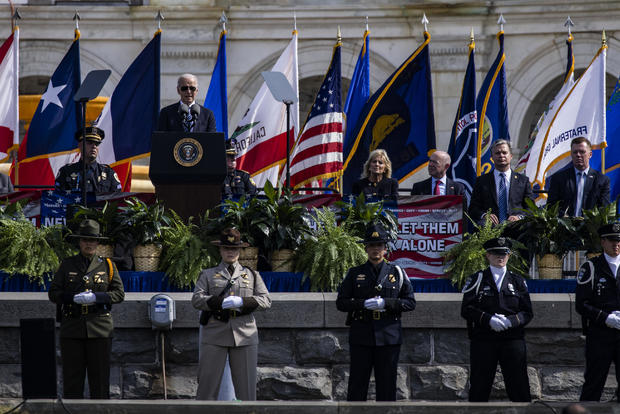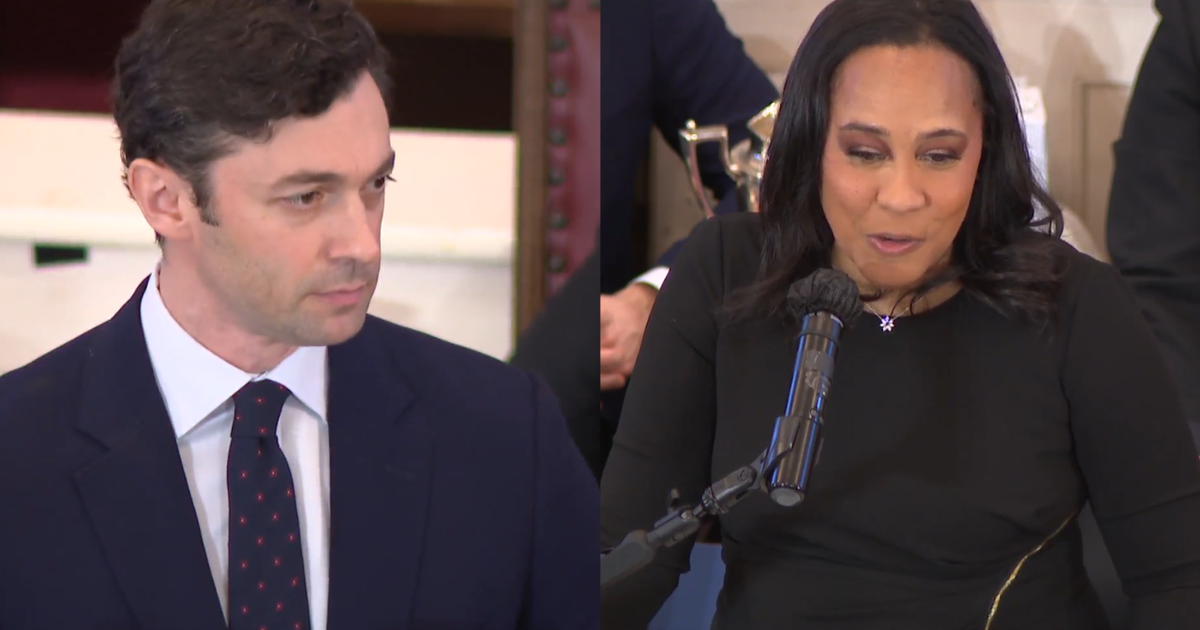White House talks reform with families of those killed by police
Senior White House officials spoke with families of African Americans slain by police last week, multiple sources familiar with the discussion confirm to CBS News. That included representatives for the family of George Floyd, according to two attendees.
A White House official said the focus of the discussion was to gather their input and priorities on executive actions the administration could take on police reform. The House passed the George Floyd Justice in Policing Act in March 2021 but congressional negotiations on bipartisan legislation broke down in the Senate nearly a month ago.
"We haven't gotten there yet but we must get there," President Biden told law enforcement members Saturday during the National Peace Officers Memorial Service at the Capitol.
Dr. Tiffany Crutcher's twin brother Terence was shot and killed by Tulsa police officer Betty Shelby in 2016. She and her father were among the families who participated in the virtual session, which included White House senior advisers Cedric Richmond and Susan Rice.
"I was just a bit numb," Crutcher described. "I told them I really didn't want to be on another call and that my family is deeply disappointed that this administration and Congress could not get this done. And we are tired. All of these families, we are tired of coming to calls like these and sharing our stories over and over again."
Crutcher said she and the other families "didn't hold back" on their frustrations during the nearly two hour meeting.
"They just said it was unacceptable and inexcusable. That was the tone and the common thread for all of the families," said Crutcher. She said relatives of Eric Garner, Botham Jean and Atatiana Jefferson were among those on the call.
She said the group proposed various recommendations to the White House, including making investigations into lethal force independent.
A White House official noted Mr. Biden is "committed" to taking additional action and will continue to consult with stakeholders, including the victims' families, the civil rights community and law enforcement groups on a path forward.
Police reform collapsed in late September after Senator Cory Booker of New Jersey called off talks with his GOP counterpart Senator Tim Scott of South Carolina. Democratic Congresswoman Karen Bass of California was also a lead negotiator.
"We weren't making progress, any more meaningful progress on establishing really substantive reform," Booker told reporters at the time.
Booker said disagreements over raising professional standards, transparency and accountability doomed a final agreement. He said the deal breaker was being unable to codify into law provisions of former President Trump's executive order that would require certain criteria for police departments to receive federal money.
"We came to a stalemate when we couldn't embody Donald Trump's EO in legislation, as is. That's problematic for me," Booker said on "Face the Nation" on October 3.
Scott said he agreed with the executive order but disagreed with cuts for non-compliance arguing many of the bill's proposed elements would "defund the police."
"We said simply this: 'I'm not going to participate in reducing funding for the police after we saw a major city after major city defund the police.' Many provisions in this bill that he wanted me to agree to limited or reduced funding for the police, " Scott told "Face the Nation" on September 26.
Crutcher, who founded the Terence Crutcher Foundation, said she and the other families are not giving up and continue to look for ways to have a meaningful impact to keep the pressure on Congress and the Biden administration.
"I'm hoping they can get something done sooner rather than later," Crutcher said.
Rodney Hawkins contributed to this story.





